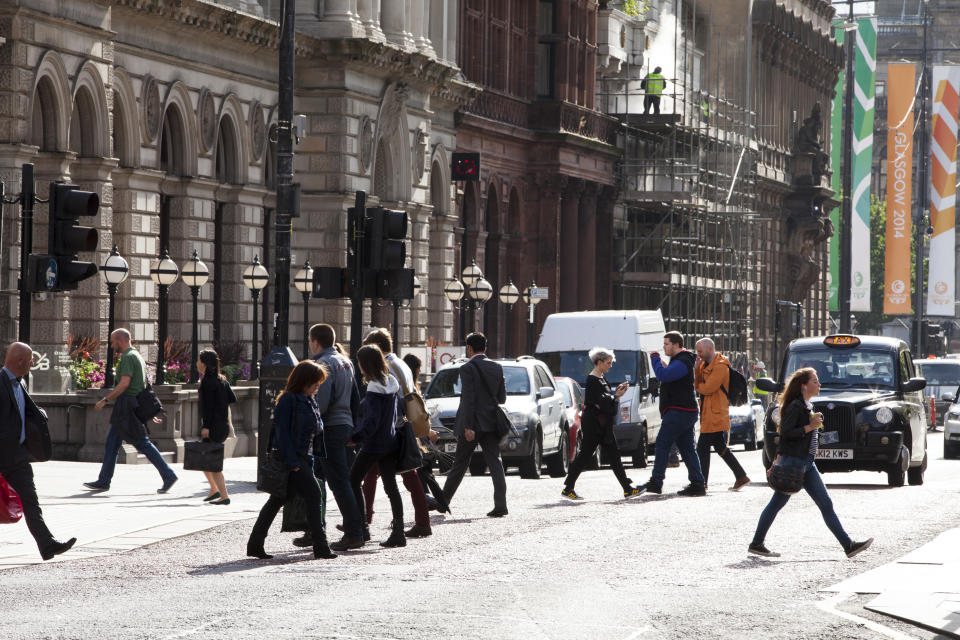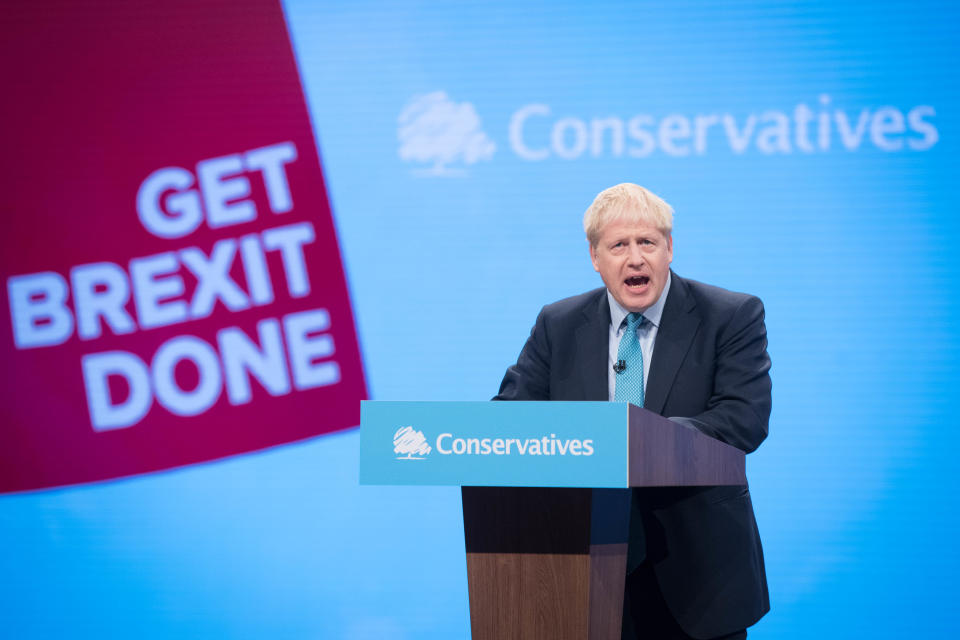The largest part of the UK economy is shrinking as recession fears grow

Fears are growing that the UK could be headed for recession, after “ominous” figures showed a downturn that has gripped manufacturing and construction spreading into the dominant services sector.
Services, which make up around four-fifths of the UK economy, saw their activity unexpectedly shrinking in September, according to a widely watched survey.
Firms reported the biggest drop in employment in nine years, with companies not replacing leaving staff and suffering from clients delaying orders because of Brexit. Services leaders were the least optimistic about growth since the EU referendum in July 2016.
The data suggests the wider UK economy could be contracting, with performance also declining in services, manufacturing and construction for a second month in a row for the first time in seven years.
It comes a day after the FTSE 100 index of Britain’s biggest companies suffered its worst day of losses since 2016, falling further than other European indices.
One analyst said there was “little time or vision” for a major turnaround this year, with heightened Brexit uncertainty hitting business investment and consumer spending in the run-up to Britain’s scheduled departure date of 31 October. Another said it raised the chances of the Bank of England cutting interest rates.
READ MORE: UK factories suffer longest downturn since financial crisis
Figures below 50 indicate a decline in trading conditions on a key index compiled by IHS Markit and the Chartered Institute of Procurement & Supply (CIPS). Readings above 50 indicate growth.
The services figure came in at 49.5 for September on the purchasing managers’ index (PMI), down from 50.6 in August. It also marked an unexpected contraction when economists had expected growth, albeit weak, predicting a reading of 50.3
Bleak figures on Tuesday had also shown UK factory production shrank for a fifth month in a row in September, and similarly bleak figures across the eurozone and the US sparked a widespread sell-off on global stock markets.
Global trade tensions and a slowdown in demand have been widely blamed for poor manufacturing performance, with the car industry suffering particularly hard. The US decision to slap tariffs on certain EU goods in a row over plane subsidies exacerbated the gloom.
The PMI figures for UK factories showed them facing the longest manufacturing downturn since the financial crisis.

Figures for the UK construction industry on Wednesday also showed it is stuck in a “devastating” downturn, with the sector’s output shrinking further in September.
The sector saw its second-fastest decline in building activity in more than a decade, with employment levels and new orders both sinking as Brexit deters investment in building work.
Duncan Brock, group director at the CIPS, said momentum and optimism were in “woefully short supply,” with fuel, food and wage costs rising for companies just as Brexit fears and a global slowdown bite.
“Some respondents mentioned overseas customers were putting spending decisions on hold or choosing other European suppliers instead. In this last month before the Brexit deadline, there is little time or vision for a major turnaround in fortunes before the end of the year,” he said.
READ MORE: UK construction stuck in ‘devastating’ downturn as Brexit deters building work
Chris Williamson, chief business economist at IHS Markit, called the services decline “ominous,” resulting from an “insidious weakening of demand” over the past year rather than a sudden shock.
He said the surveys pointed to a fall in GDP by 0.1% in the third quarter, which would spell recession after a decline in the second quarter.
He suggested it could raise the chances of interest rate cuts, noting: "The increasingly dire readings push the surveys further into territory that would normally be associated with policy stimulus from the Bank of England, suggesting a greater likelihood that the next move in interest rates will be a cut.”

 Yahoo Finance
Yahoo Finance 